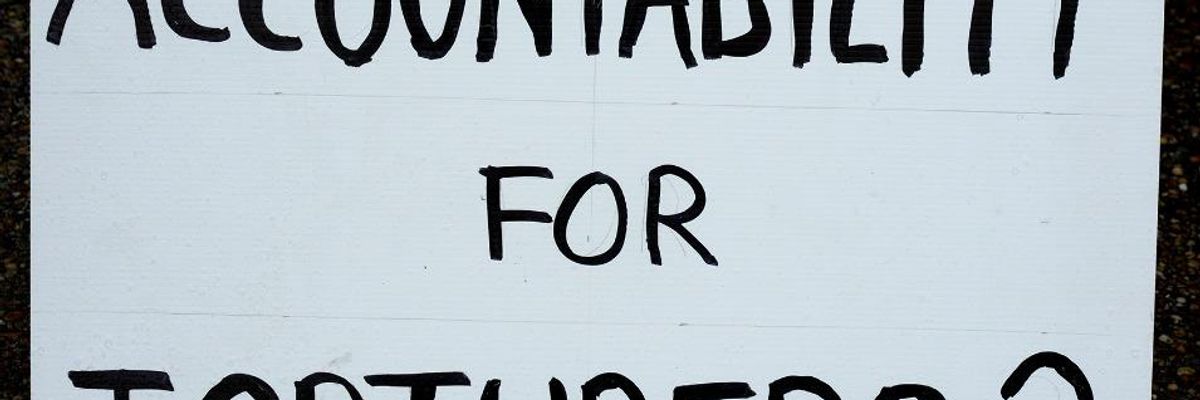In a ruling that "affirms that U.S. corporations are not entitled to impunity for torture and war crimes," a federal appeals court Monday overturned a lower court's decision that had prevented accountability sought by Iraqi victims of torture at the notorious Abu Ghraib prison.
World outrage followed photo evidence of brutality at the prison between 2003 and 2004, and a leaked, internal Army report noted "sadistic, blatant, and wanton criminal abuses" at the hands of interrogators at the facility.
The suit, Al Shimari v. CACI International, Inc., was brought on behalf of four victims of torture at Abu Ghraib, against the Arlington, Virginia-based contractor, which was hired by the United States to conduct interrogations at the prison, and whom the plaintiffs say "instigated, directed, participated in, encouraged, and aided and abetted conduct towards detainees that clearly violated the Geneva Conventions, the Army Field Manual, and the laws of the United States." They state that the contractor engaged in abuse, ignored reports of mistreatment and attempted to cover up the torture.
One of the plaintiffs in the case is Al Jazeera journalist Salah Hassan Al-Ejaili, who was seized while performing his "journalistic duty" and was brought to Abu Ghraib. Describing the abuse he suffered roughly a decade ago, he toldDemocracy Now! in April 2014 that he was humiliated, forced to strip and stay naked for extended periods, hooded, subject to intimidation by a dog, was kept in solitary for 40 days and was subjected to tortuous, hours-long interrogations every two or three days.
The appeals court found that the district court erred in its interpretation of the U.S. Supreme Court decision in Kiobel v. Shell/Royal Dutch Petroleum regarding the Alien Tort Statute. That 2013 Supreme Court decision ruled that in cases that "touch and concern" the United States "with sufficient force," the "presumption against extraterritorial application" could be overcome.
In the opinion for the three-judge panel for 4th U.S. Circuit Court of Appeals in Richmond, Virginia, Obama-appointed Judge Barbara Milano Keenan states that the case should not have been dismissed and must proceed, because "upon applying the fact-based inquiry articulated by the Supreme Court in Kiobel, we hold that the plaintiffs' claims 'touch and concern' the territory of the United States with sufficient force to displace the presumption against extraterritorial application of the Alien Tort Statute."
The Center for Constitutional Rights, which filed the suit on behalf of the victims, welcomed the ruling.
"Today's court ruling affirms that U.S. corporations are not entitled to impunity for torture and war crimes and that holding U.S. entities accountable for human rights violations strengthens this country's relationship to the international community and basic human rights principles," stated Baher Azmy, CCR Legal Director.

